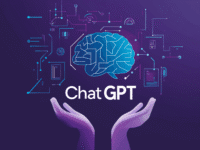Publié : 3 November 2025
Actualisé : 1 day ago
Fiabilité : ✓ Sources vérifiées
Notre équipe met à jour cet article dès que de nouvelles informations sont disponibles.
📋 Table of Contents
🍎 Apple and AI: A complicated history
Ah, Siri… Our favorite (or not) voice assistant. The one that sometimes makes us sigh, or worse, laugh nervously when it doesn’t understand anything. Since the thunderous arrival of generative AI, Apple’s little voice has fallen way behind. Compared to ChatGPT, Gemini, and Copilot, Siri seems stuck in the past. And the Cupertino-based company understands this. But how do you catch up with a train that’s traveling at full speed?
The promise of Apple Intelligence was a breath of fresh air, an AI that was finally up to the task. Except that at the moment, the whole thing is struggling to convince and fully integrate into our lives. Users are waiting, being patient, but competitors are constantly innovating. The pressure is immense.
🤝 Mark Gurman’s bombshell: Google to the rescue!
Just imagine: Apple, the brand known for its secrecy, joining forces with its archrival on such a crucial project. This is the bombshell dropped by Mark Gurman, the famous Bloomberg journalist, which has sent shockwaves through the tech world! According to his sources, Apple won’t be going it alone in its quest to reinvent Siri and give Apple Intelligence a real boost. It will be knocking on Google’s door.
Yes, you read that right. Google. The very same company that is its sworn enemy on many fronts. But also its indispensable partner on others, particularly web search. This unexpected alliance, if it materializes, would show how serious, and perhaps a little desperate, Apple is to finally position itself in the AI race.
Key takeaway: Apple has reportedly commissioned Google to create a customized version of one of its Gemini language models to power the new Siri, with a launch planned for early 2026 at the earliest.
🌐 Why does Apple need Google? The web index
The burning question is: why on earth would Apple seek salvation from Google? The answer is simple and logical: the web index . For AI to be truly useful, it must be able to search the internet in real time, synthesize information, and answer complex questions. And that’s where Google reigns supreme. Apple doesn’t have its own search engine or web index—remember that Google is the default search engine on iPhones.
This is a pragmatic collaboration. Apple needs this firepower so that Siri is no longer just a basic assistant, but a truly intelligent chatbot, capable of understanding and responding to demanding queries.
Important: This does not involve integrating Gemini’s services or interface directly into Siri. Google would provide the AI “engine” in the background, while Apple would retain control of the user experience via Apple Intelligence, all on its Private Cloud Compute servers to ensure data protection.
⚙️ Gemini under the hood of Siri: How does it work?
In concrete terms, imagine that when you ask Siri a complex question, it’s not Apple’s AI that processes the information alone, but a language model derived from Gemini. The latter would process the query, find the best answer, and send it back to Siri. Siri would then present it to the user in the usual Apple Intelligence interface, as if nothing had happened.
This customized version of Gemini should be able to run on Apple’s secure servers, the famous Private Cloud Compute. This would allow Apple to reassure its users about the confidentiality of their data, an issue on which the brand is traditionally very demanding. It’s a kind of marriage of convenience where each party retains its prerogatives.
🐢 Apple’s lag in the AI race
This move, while strategic, highlights Apple’s significant lag in the field of artificial intelligence. While Samsung, Google, and even startups like OpenAI invested heavily early on, Apple seems to have been a little late to the game. Apple Intelligence tools are few and far between, and the competition often offers more powerful solutions.
The Apple ecosystem, powerful as it is, suffers from not having its own AI seamlessly integrated into macOS and iOS. This is a thorn in the side of the brand, which is desperate to pick up the pace. The secrecy surrounding Apple Intelligence during the launch of the iPhone 17 and its absence from the crucial Chinese market are clear signs of this.
| Major challenge | Current impact |
|---|---|
| Initial delay | Competition far ahead |
| Lack of proprietary web index | Dependence on third parties (Google) |
| Limited integration | Fewer native AI features in the ecosystem |
| Geographic availability | Absence of Apple Intelligence in key markets such as China |
🔮 What’s next? A glimmer of hope for Siri?
There is still a long way to go. Don’t expect a revolutionary Siri before, at best, the first quarter of 2026. That’s an eternity in the tech world! However, there is a glimmer of hope: innovation among competitors is also starting to stall. ChatGPT-5 has been a disappointment overall, and Gemini 3.0 is a long time coming.
This period of relative calm could give Apple the time it needs to refine its approach and launch an AI that stands up to scrutiny. The partnership with Google, however delicate, could be the boost Apple needs to get back in the race and finally give Siri the capabilities its users have been waiting for for so long.
The simple fact that Apple has to turn to Google for such a fundamental piece of its AI future shows the scale of the challenge and how far they still have to go to catch up.
See you in 2026 to find out if this marriage of convenience between Apple and the search giant has borne fruit!






















0 Comments